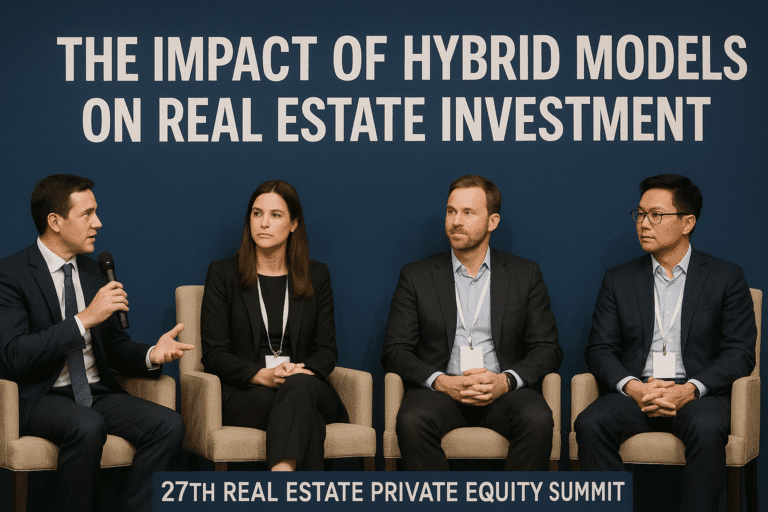The 27th Real Estate Private Equity Summit, held in New York, NY, gathered industry leaders, investors, and experts for an engaging discussion on the evolving landscape of real estate investment. Organized by iGlobal Forum, the event provided valuable insights into the rapid changes occurring within the sector, particularly regarding the rise of hybrid investment models.
Hybrid investment vehicles have begun to disrupt the traditional capital flow in real estate markets. These models combine elements of both equity and debt, offering more flexibility and access to a wider range of investors. As panelists discussed, these new vehicles are gaining traction due to their ability to provide a more diverse portfolio, reduce risk, and cater to the growing demand for alternative investments. With traditional real estate investments often requiring large capital commitments, the hybrid models allow smaller investors to participate in larger deals, fostering a more inclusive investment environment.
One of the major themes throughout the summit was how these hybrid models are reshaping investor expectations. The traditional real estate investment landscape often relied on large institutional investors who could pool massive amounts of capital. However, as the market diversifies, more opportunities are opening up for smaller players, including family offices, high-net-worth individuals, and even institutional investors looking for innovative ways to engage with the sector. Hybrid models provide an attractive solution, enabling these investors to access a more balanced mix of risk and reward.
Another key point discussed was the importance of technology in facilitating the success of these hybrid models. The integration of blockchain, data analytics, and digital platforms has made it easier for investors to navigate the complexities of real estate transactions, track asset performance, and ensure transparency. As the industry continues to evolve, technology will play a critical role in maintaining the efficiency and accessibility of hybrid real estate investment models.
Moreover, the summit also highlighted the changing regulatory landscape that could impact the adoption of hybrid models. As more investors show interest in alternative investment strategies, regulators are beginning to take notice. Panelists addressed the challenges of navigating varying regulatory environments, particularly as these hybrid vehicles grow in popularity across different regions.
In conclusion, the 27th Real Estate Private Equity Summit offered a comprehensive look at the future of real estate investment. With hybrid models leading the charge, the industry is entering a new phase of accessibility, inclusivity, and innovation. As these models continue to disrupt traditional capital flows, they promise to reshape the way investors approach the real estate market in the years to come.
